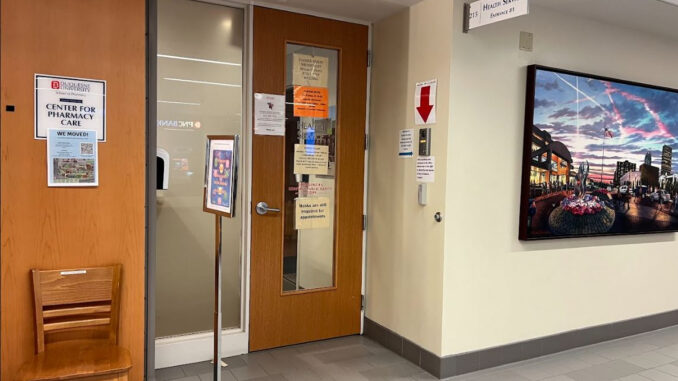
Alicia Dye | News Editor
Sept. 15, 2022
On Tuesday, Duquesne announced via email that the university will have the bivalent Covid-19 booster vaccine available to all students and employees after completion of any FDA-approved or FDA-authorized primary series, according to the email.
The new bivalent vaccine is recommended for anyone above the age of 12. The bivalent booster must be given at least two months after any previous Covid vaccine.
What is the new bivalent vaccine? According to the U.S. Food and Drug Administration (FDA), it is an updated booster that contains two messenger RNA (mRNA) components of SARS-CoV-2 virus, one of the original strains of Covid and the other one common in two lineages of the omicron variant of Covid. The bivalent vaccine was approved for emergency use on Aug 31.
There are two different bivalent vaccines available, one by Pfizer and one by Moderna. The Pfizer one is approved for anyone age 12 and above, while the Moderna one is approved for anyone age 18 and above. Duquesne has both vaccines available to students and employees, so the choice is theirs.
The bivalent vaccines come at a time where Covid cases have been on the rise at Duquesne. According to the university’s Covid dashboard, there have been 197 cases since Aug 15, with the peak of cases happening just a few weeks ago, when 25 students tested positive Aug 29. All case numbers are updated as of Monday.
Duquesne is handling Covid differently than in the past, with no mask mandates and no required Covid testing, a change compared to previous years.
The largest change is how Covid-positive students quarantine. In previous years, there have been Covid isolation floors available in certain residence halls, where students who tested positive would live and get food delivered to them. Last academic year, students who lived within 300 miles would have to isolate at home, while anyone who lived 300 miles or more away could isolate on campus.
This year, students who live on campus and test positive for Covid must go home to isolate themselves, unless they live more than 200 miles away from Duquesne.
However, resident students also have the option to isolate in their dorm, as long as they and their roommate sign the Isolation-In-Place Agreement. If students live more than 200 miles away and do not have an Isolation-In-Place Agreement, Residence Life will work with the student to arrange living conditions on campus.
If students choose to isolate themselves on campus, they are allowed to get their own meals, with the only requirement being that they have to wear a mask.
Student Loren Davis is not happy about the changes.
“It puts a lot of other people at risk,” Davis said. “People already act like Covid has gone away, and I think this adds to it.”
Health Services is no longer conducting contact tracing for those who test positive either.
“Health Services will no longer conduct contract tracing. However, we stress that any person with a positive status notify any close contacts, particularly those who are immunocompromised or elderly,” their website says.
For those who are immunocompromised, the situation is even scarier.
“I can wear my mask to be safe, but that only does so much,” said student Abby Nimerosky. “I have a thyroid issue, and just knowing that people can leave their room while they have Covid to get things like Starbucks is frightening.”
Commuter students must alert Health Services if they test positive for Covid, and Health Services will work with them on an isolation plan, according to an email from the university.
“As a reminder, students who test positive for Covid-19 must report their case to the university’s Health Services by calling 412-396-1650 or emailing duhealth@duq.edu as part of Duquesne’s Covid protocol,” the email said.
Davis had Covid right as the semester started, and she had a hard time with classes.
“Although your professors are supposed to give you a Zoom link when you have Covid, not all of them do,” Davis said. “I had trouble getting Zoom links, even after sending my positive test result to Health Services.”
The university is currently offering free antigen testing for asymptomatic students who had a recent Covid exposure. The testing is also available for anyone who is concerned about Covid and would like to get tested. The testing clinic will be through Friday, from 10 a.m. to 3 p.m. in room 109 of the Union.
There are walk-in Covid vaccine clinics available on campus, where students can get the new bivalent vaccine booster throughout the semester. Students and employees can also schedule an appointment for the new booster at 412-396-2155 or cpc@duq.edu (Center for Pharmacy Care).
Walk-in clinics will be held this Thursday, Oct. 20 and Nov. 7 in the Africa Room of the Union (10 a.m. to 2 p.m.), Oct. 6 in UPMC Cooper Fieldhouse (10 a.m. to 2 p.m.), and every Tuesday and Thursday in room 109 of the Union (11 a.m. to 1 p.m.), beginning next week.
